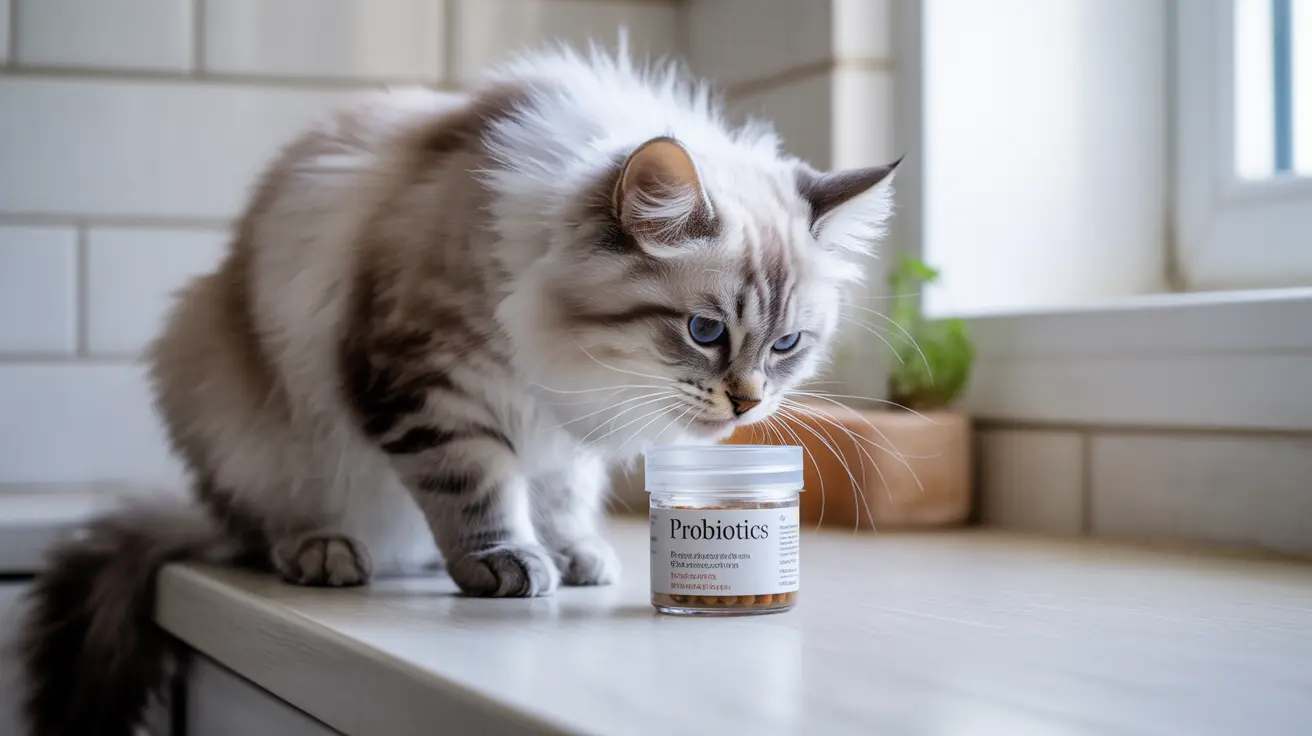If you're looking for the best probiotics for cats, you're making a smart choice for your feline friend's health. These beneficial supplements can dramatically improve your cat's digestive wellness and overall health. In this comprehensive guide, we'll explore everything you need to know about choosing and using cat probiotics effectively.
Probiotics are live beneficial bacteria that support your cat's gut microbiome - the complex ecosystem of microorganisms living in their digestive tract. When properly selected and administered, these supplements can help prevent and treat various digestive issues while boosting immune function.
Understanding Cat Probiotics and Their Benefits
Probiotics offer numerous health benefits for cats, backed by veterinary research and clinical studies. These beneficial bacteria help maintain a balanced gut environment, which is crucial for your cat's overall health and well-being.
- Improved digestion and nutrient absorption
- Reduced frequency of diarrhea and constipation
- Enhanced immune system function
- Better management of inflammatory bowel conditions
- Potential reduction in antibiotic dependence
Choosing the Right Probiotic for Your Cat
When selecting a probiotic supplement, look for products specifically formulated for cats. The best probiotics for cats will contain strains proven effective for feline health, such as Enterococcus faecium and various Lactobacillus species.
- CFU (Colony Forming Units) count
- Strain diversity and specificity for cats
- Storage requirements and shelf stability
- Manufacturer reputation and quality control
- Veterinary endorsement
Administration and Timing
Most cat probiotics come in powder, capsule, or treat form. The best time to give probiotics is typically with meals, but follow the specific product's instructions and your veterinarian's guidance.
- Maintain consistent daily dosing
- Store products according to instructions
- Monitor your cat's response
- Allow 4-6 weeks for full benefits
Common Uses and Applications
Veterinarians commonly recommend probiotics for cats experiencing:
- Acute or chronic diarrhea
- Antibiotic-associated digestive issues
- Stress-related stomach upset
- Inflammatory bowel disease
- Recovery from illness or surgery
Signs Your Cat Might Need Probiotics
Consider probiotic supplementation if your cat shows:
- Frequent digestive upset
- Changes in appetite or stool consistency
- Increased hairball problems
- Recovery from antibiotic treatment
- Signs of stress or anxiety
Frequently Asked Questions
What are the best probiotic strains to support my cat's digestive health?
The most effective probiotic strains for cats include Enterococcus faecium, Lactobacillus acidophilus, and Bifidobacterium species. These strains have been specifically studied in cats and shown to support digestive health.
How do probiotics help manage digestive issues like diarrhea and constipation in cats?
Probiotics work by restoring balance to the gut microbiome, helping regulate bowel movements, reducing inflammation, and strengthening the digestive system's barrier function. This helps normalize stool consistency and frequency.
When should I give probiotics to my cat, and how long until I see results?
Give probiotics daily, preferably with food. While some improvements may be noticed within days, allow 4-6 weeks for optimal results. Consistency is key for long-term benefits.
Can probiotics improve my cat's immune system and reduce their need for antibiotics?
Yes, probiotics can strengthen your cat's immune system by supporting gut health, where much of the immune system resides. This may help reduce the frequency of infections requiring antibiotic treatment.
Which probiotic products are recommended by veterinarians for cats and why?
Veterinarians often recommend products like Fortiflora, Proviable, and Glandex due to their proven efficacy, quality control standards, and specific formulation for feline needs. These products have demonstrated consistent results in clinical settings.
Conclusion
The best probiotics for cats can significantly improve your pet's digestive health and overall well-being. When choosing a probiotic, focus on quality, appropriate strains, and veterinary recommendations. Remember to consult with your veterinarian before starting any new supplement regimen, as they can help select the most appropriate product for your cat's specific needs.






